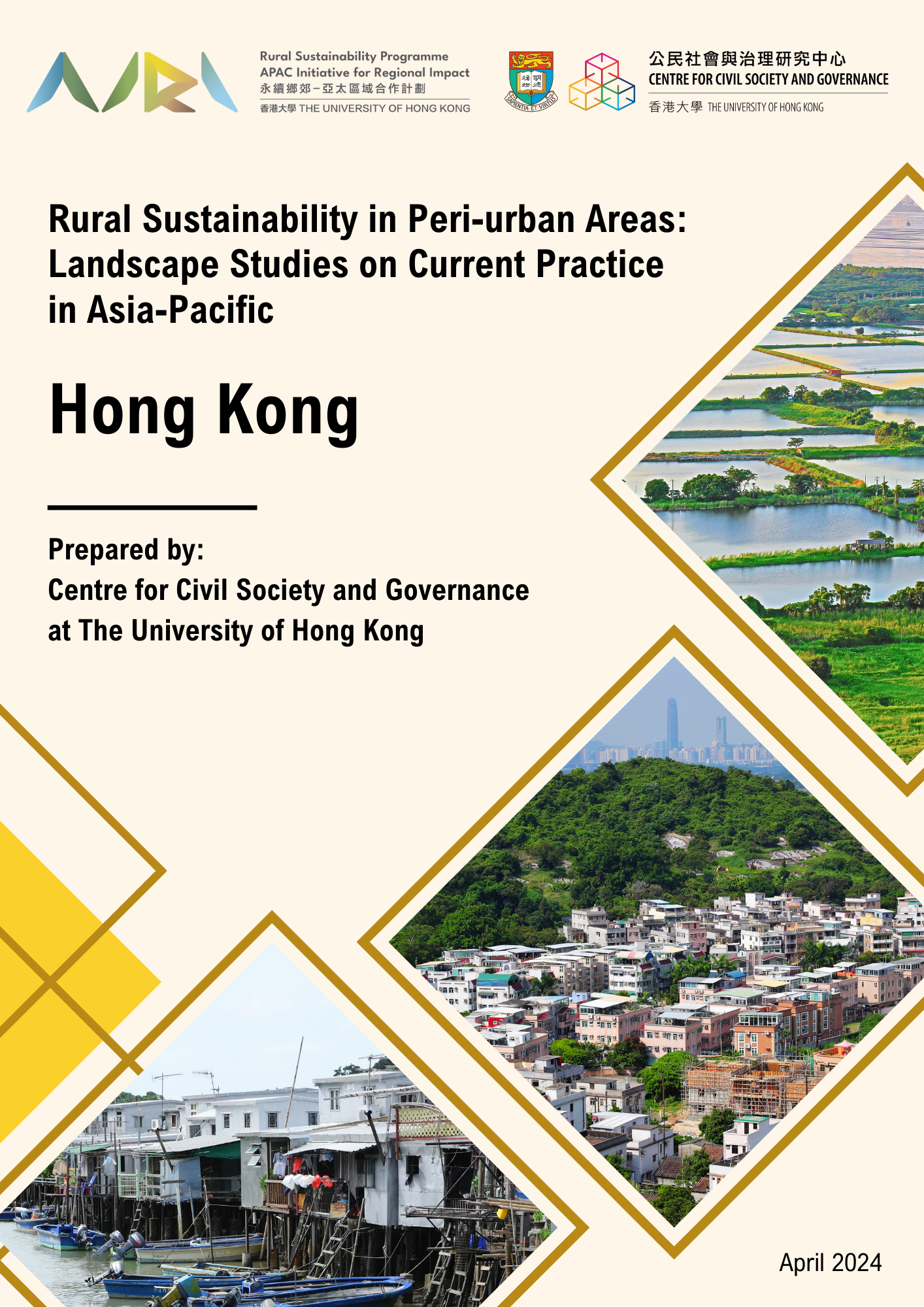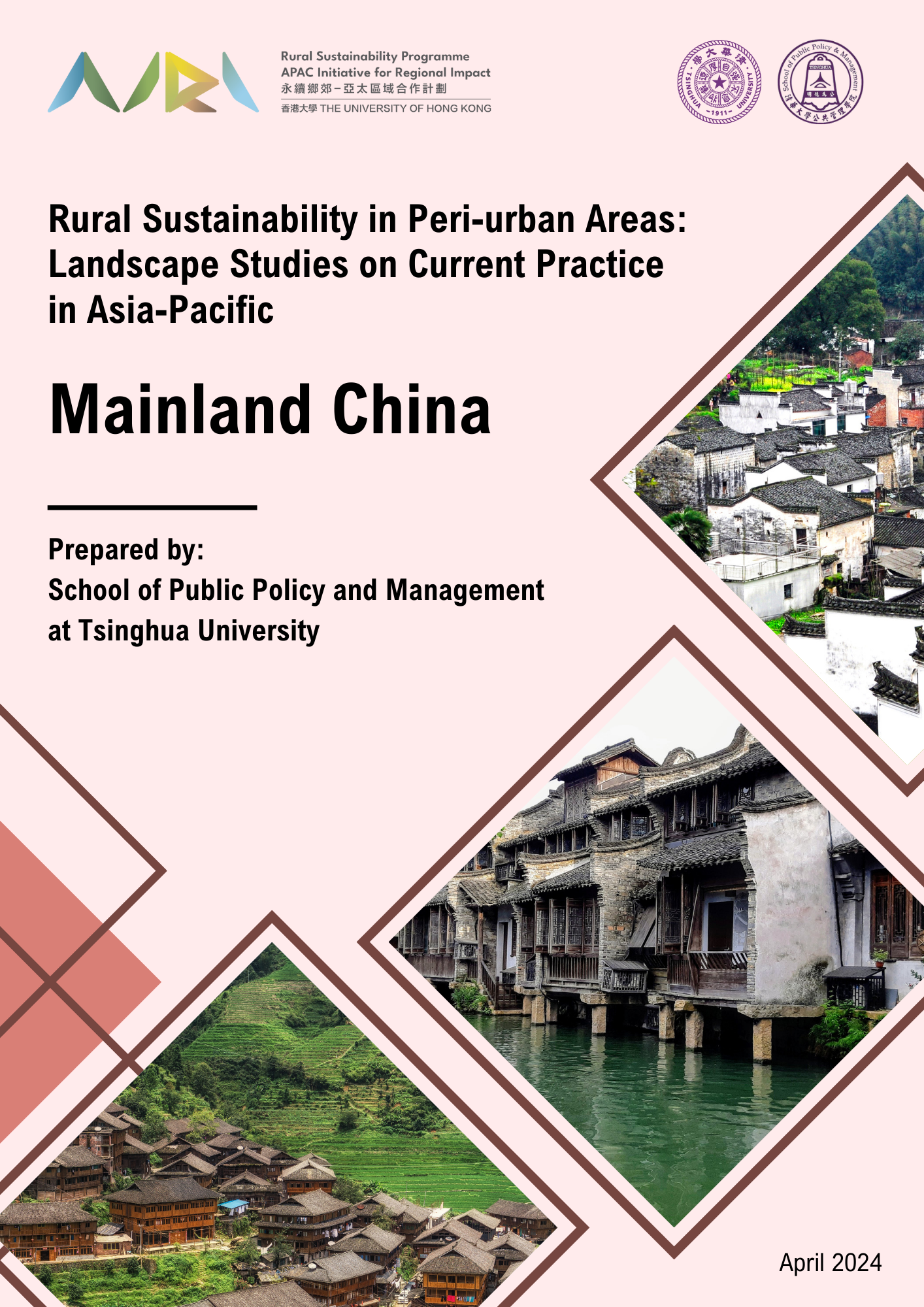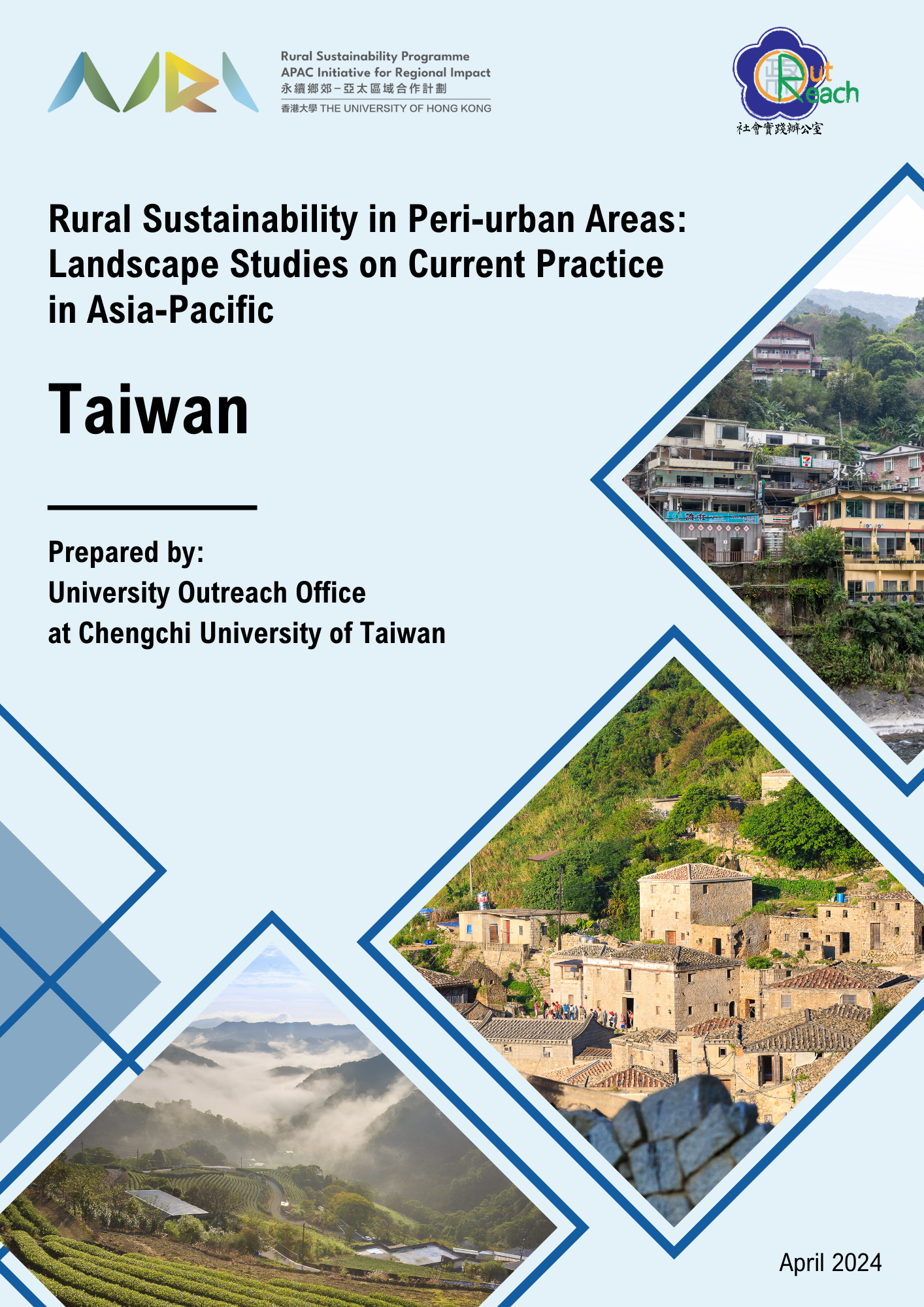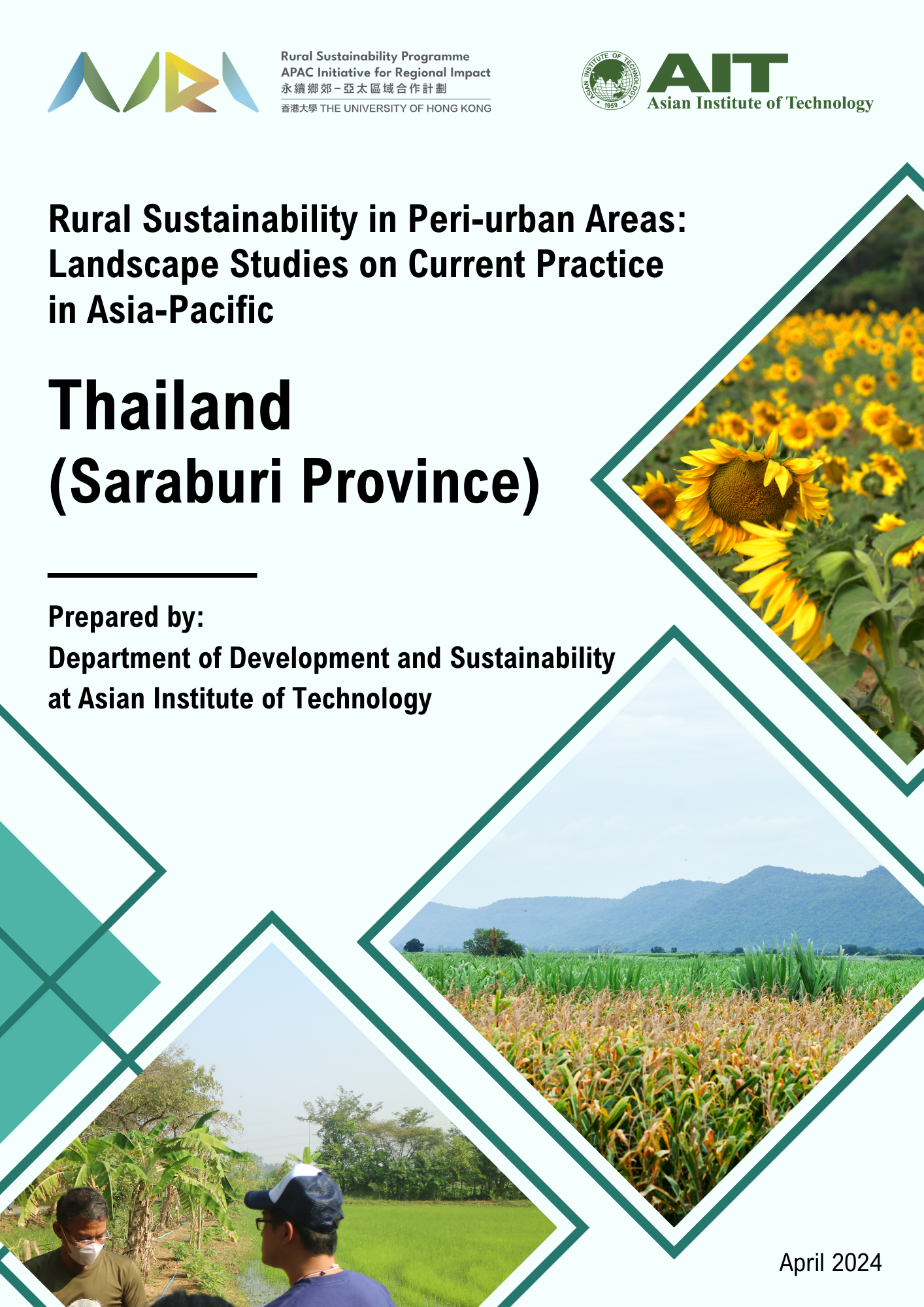A unified framework will be developed to serve as the intellectual anchor for the landscape studies on the themes of rural sustainability. Findings of the studies will contribute to a better understanding of the diverse pathways to rural sustainability in Asia-Pacific, and coalesce into an Asia-Pacific model of rural sustainability which can be used to inform policy innovations and action partnerships in the region and beyond.
Research 1:
Rural Sustainability in Peri-urban Areas: Landscape Studies on Current Practice in Asia-Pacific
The four member universities of the consortium have shared the task to examine trends in the rural socio-economic and policy landscape of their respective city/country/region in order to identify current strengths in rural sustainability and future challenges for rural revitalisation. The landscape study reports were finalised in April 2024.
Landscape Study Outline:
- Background – overview of important factors affecting rural areas in each jurisdiction, such as population and income
- Summary of changes affecting rural sustainability – explanation of how rural economies, environment, society, and technology has changed, for trend comparison among different jurisdictions
- Institutional support for rural revitalisation – moving from rural sustainability to rural revitalisation, this section investigates official government definitions and goals with regards to rural revitalisation, and enumerates how the macro-level administrative structure specifically focuses on and enables rural revitalisation
- Strengths and challenges in rural revitalisation – given the factors laid out in the first three points, a reflection on current strengths and future challenges for rural revitalisation in the Asia-Pacific region.
Landscape Study Reports:
Click the images below to read the full reports.
Research 2:
Database of Rural Sustainability Projects and Codebook Analysis
The study intends to move away from the urban- or rural- centric perspective and investigate the sustainability paths that the evolving and transitional zone could take. By collating different initiatives across Asia-Pacific and determining the drivers behind their outcomes, this study will contribute to the improvement of rural sustainability efforts and serve as a foundation for further research across the region.
Objectives:
- Categorise the different types and outcomes of recent and current rural sustainability projects and initiatives that are currently employed across APAC
- Identify factors or groups of factors contributing to the success of rural sustainability projects and initiatives
- Identify greater policy implications for the support and promotion of rural sustainability in APAC
Outline and Methodologies:
- Regional database - Projects that will be included in the database may be initiated by any sector of society, such as the government, civil society, and communities. All projects must meet the following criteria for inclusion in the database:
- Projects include the involvement of at least one group of people in a peri-urban setting, with an explicit goal of sustainable development, natural resource or cultural heritage conservation, collaboration, or social welfare.
- Project was started in the last 10 years or is currently ongoing.
- Code book – to further analyse selected projects and initiatives from the database. The variables included in the codebook will be drawn from different concepts, such as collaborative governance, rural revitalisation and resilience, community solidarity and transformative change.
Case Bank for Best Practices:
Click here to view the case bank.



